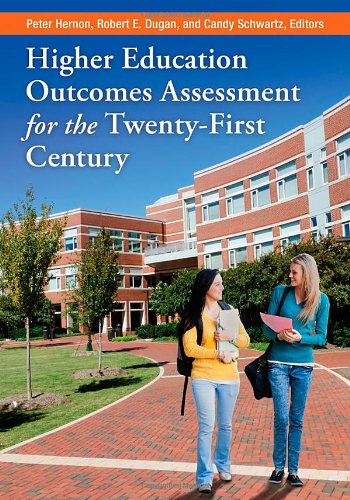

Most ebook files are in PDF format, so you can easily read them using various software such as Foxit Reader or directly on the Google Chrome browser.
Some ebook files are released by publishers in other formats such as .awz, .mobi, .epub, .fb2, etc. You may need to install specific software to read these formats on mobile/PC, such as Calibre.
Please read the tutorial at this link. https://ebooknice.com/page/post?id=faq
We offer FREE conversion to the popular formats you request; however, this may take some time. Therefore, right after payment, please email us, and we will try to provide the service as quickly as possible.
For some exceptional file formats or broken links (if any), please refrain from opening any disputes. Instead, email us first, and we will try to assist within a maximum of 6 hours.
EbookNice Team

Status:
Available4.3
6 reviewsHigher Education Outcomes Assessment for the Twenty-first Century focuses on recent developments in outcomes assessment, especially from the perspectives of the federal government and state governments, as well as foundations concerned about the state of higher education. The authors identify the significant changes that these stakeholders call for—information that academic librarians and anyone following outcomes assessment need to be aware of—and interpret the discussions to identify implications for libraries.
Building upon the foundation of knowledge presented in the previous two Libraries Unlimited Outcomes Assessment in Higher Education titles, this book provides readers with up-to-date coverage of topics such as the emerging metrics used to define student and institutional success; the increased importance of accountability and the need to compare and assess the performance of programs and institutions rather than individual courses; and the shift in prioritizing student outcomes over student learning outcomes. The authors also spotlight the critical need for libraries to fit their role within the national discussion and suggest ways in which library managers and directors can play a role in redirecting the discussion to their benefit.